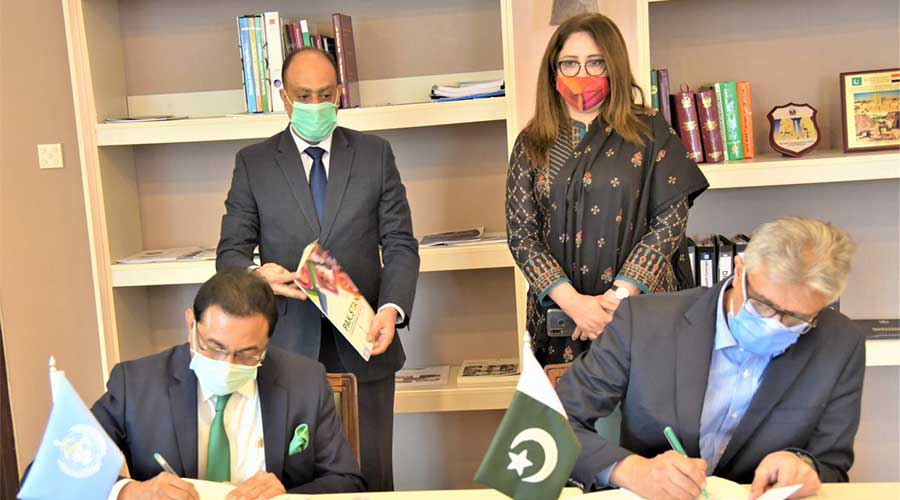Pakistan and World Health Organization have signed Country Cooperation Strategy (2020–2025) to strengthen the relationship between the Government of Pakistan and WHO as part of the wider United Nations system.
The strategy was signed by the Special Assistant to the Prime Minister on Health Dr. Faisal Sultan and the WHO Representative in Pakistan Dr. Palitha Mahipala in Islamabad. The major aim of signing this strategy reaffirms the strength of the relationship between the WHO and the government of Pakistan.
Read more: WHO lists Pakistan among countries to learn from to fight Covid-19, future pandemics
Moreover, it improves the long history of collaboration of WHO with Pakistan and will help work together toward agreed priorities for greater impact for better health of the population in Pakistan.
The Country Cooperation Strategy is aligned with national policies and plans: 12th National Five Year Plan (2018–2023), National Health Vision (2016–2025), Ministry of National Health Services, Regulations and Coordination Action Plan (2019–2023), WHO’s 13th General Programme of Work 2019–2023 and the United Nations Sustainable Development Goals framework 2018–2022.
Development of the Country Cooperation Strategy is the outcome of the analysis of the health and development situation of the country and of WHO’s current programme of activities with wide stakeholder engagement.
Country Cooperation Strategy will bring the strength of WHO support at the 3 levels of the organization country office Regional Office and headquarters – in a coherent manner to align with health priorities in Pakistan. It is structured around 3 strategic priorities to ensure healthy lives and wellbeing for all at all ages:
- advancing universal health coverage
- addressing health emergencies
- promoting healthier populations
Moreover, US$ 885 million will be required to support the Government in achieving these strategic goals over a period of 6 years (2020-2025) however these strategic priorities will be supported by 3 strategic shifts in the WHO country office, i.e. stepping up leadership, driving impact in the country and focusing on global public goods impact.





















